44. How Might Santa Claus Serve in Your Christmas Celebration?
Podcast: Play in new window | Download (Duration: 1:05:10 — 61.0MB) | Embed
Every Christmas, you see this image as a painting, meme, card, or ornament: a devoted Santa Claus, with his red elf-hat removed, kneels before the Christ-child in a manger. Sure, it’s kitschy, but for my part, I’ve always loved this image. Still, many well-meaning Christians see Santa as a pretender to Christ’s throne rather than a worshiper before Him. How do faithful fans respond? What do you think about the “Santa Claus vs. Jesus Christ” clash at Christmas?
Concession stand
- If you just got here to Fantastical Truth, this episode builds on many others.
- We have a growing body of work here and at Lorehaven about magic and Santa.
- Also, no, we’re not accusing anyone of legalism here. That’d be legalistic.
Quotes and notes
- Redeeming Santa Legends for Delighting in Grace, article
- Don’t Ditch Santa, part 1, article
- Don’t Ditch Santa, part 2, article
- Jesus vs. Santa Notions are Stuff and Nonsense, article
- Fictional Magic, two-part podcast series
Author and pastor John Piper writes:
It is mindboggling to me that any Christian would even contemplate such a trade, that we would divert attention away from the incarnation of the God of the universe into this world to save us and our children. Not only is Santa Claus not true — and Jesus is very truth himself — but compared to Jesus, Santa is simply pitiful, and our kids should be helped to see this.
Santa Claus offers only earthly things, nothing lasting, nothing eternal.
Bethany J. wrote:
I’m not a fan of Santa, myself, but my big issue with him isn’t the make-believe (which is fine!) or even the “competition” he supposedly makes for the true purpose of Christmas. My issue with him is that it often goes beyond make-believe and becomes just a flat-out lie. I don’t have a problem with Christians including Santa in their Christmas traditions, but should Christian parents really tell their kids that Santa is REAL, when he’s not?
JoAnna wrote:
Many years ago we stopped playing the Santa game because I had a child who insisted Santa was real but not Jesus. She was too confused by all the hype.
So we switched to treating Santa like [any] other cartoon character and made sure the kids all knew mom was the real gifter of toys ?. For us Christmas is a celebration of Jesus’s coming to earth along with celebrating the joy of being together. We’re not anti-Santa either. I try and teach my kids about St. Nicholas and many of the other wintertime characters.
William Umstattd wrote:
Giving gifts is a great analogy representing the gift Jesus was and is to the world. Jesus gave the gift of eternal life so we give gifts to each other on Christmas as a reenactment of what Jesus did for us.
We do this in December because winter is sad, depressing and cold. We were sad and depressed in our sin but then Jesus came and turned our sadness into happiness. Christmas and gift giving is the same but for winter instead of sin.
As a four year old this concept is difficult to understand. What’s easy to understand is the excitement of getting a gift.
1. Sacred Santa: Santa stands beside the manger
- This is the idolatry we all kinda fear deep down in our imaginations.
- Yes, we have our Nativity scene. But Santa Claus is given equal value.
- Or maybe the big six-foot animated Santa glows brighter than the scene.
- We could adopt the Santa mythology wholesale, potential idols and all.
- Yes, we could drift into consumerism, and enjoying gifts for their own sake.
- We even sing along with songs that reinforce moralism. Piper rightly notes:
Santa Claus offers his ephemeral goodies only on the condition of good works: “He knows when you are sleeping, he knows when you’re awake, he knows when you’ve been bad or good, so be good for goodness’ sake.” That is a pure works religion. And Jesus offers himself all the gifts freely, by grace, for faith.
2. Satanic Santa: The manger must crush Santa’s head
- By contrast, or in response, other parents bar Santa from the scene entirely.
- Some buy into superstition, even the whole “SATAN” anagram, or anti-magic.
- Of course, you get plenty of suspicions about early paganism in Christmas.
- All of Church history tangles with false religions here and there. It’s a fact.
- Honestly, even Piper for his wisdom crosses into this territory in his article.
- Some idolize parents, but we wouldn’t disparage them as inferior to Jesus!
- It’s a healthy fear of idols, twisted into a fear of God’s material gifts in culture.
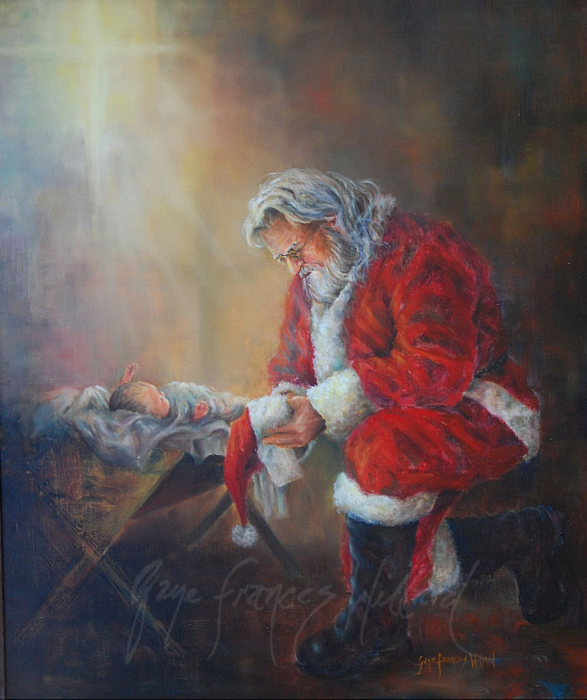
This painting, “Every Knee Shall Bow,” is from contemporary artist Gaye Frances Willard. Prints are available here.
3. Servant Santa: Santa kneels at the manger and before Christ’s throne
- Both those methods can set up idols based on fear/control, not gospel grace.
- Piper is right to expose Santa-as-idol, but ignores Santa-as-cultural-servant.
Piper writes:
Not only is Santa Claus not true — and Jesus is very truth himself — but compared to Jesus, Santa is simply pitiful, and our kids should be helped to see this.
To this Stephen responded:
This warning is needed for any Christian parents who have a low or un-biblical view of the amazing Hero, Jesus Christ, Who is absolutely the central Figure of Christmas.
But shall we apply this same warning for all Christians, presuming they are so immature that they cannot handle other heroes, real or imaginary, lest they distract from Christ? What if we said, “Compared to Jesus, Charles Spurgeon is simply pitiful.” “Compared to Jesus, Aslan of The Chronicles of Narnia is simply pitiful.” “Compared to Jesus, John Piper is simply pitiful.” “Compared to Jesus, Bilbo Baggins of The Hobbit is simply pitiful.” And what about other good gifts of Jesus? Compared with Him, food is pitiful, married romance and sex is pitiful, children are pitiful, church politics are pitiful.
Yes, all these are true! But do we only ever issue dour warnings about these gifts? This is an overly self-abasing “worm theology” way to live, as if under constant suspicion that mature Christians are still totally depraved and cannot enjoy gifts lest they distract from Jesus. Yes, these can distract from Jesus. But the best way to prevent this is to see gifts as His gifts.
- It’s odd; Piper loves C. S. Lewis, yet forgets Lewis’s treatment of Father Christmas.
- Lewis himself despised the commercialization and secularization of the holiday.
- Stephen’s now sees Santa as basically Lewis’s version of Father Christmas.
- He isn’t a mere mythological dispenser of moralistic toy-based justice.
- Santa as a part of Christmas (“real” or not) can show pictures of happiness.
- Of course, it would be totally up to you if you want to treat him as “real.”
- Either way, Santa, as a cultural servant of Jesus Christ, can give “tools, not toys”!
- Santa, like church, family, any good yet idol-vulnerable gift, can serve Christ.
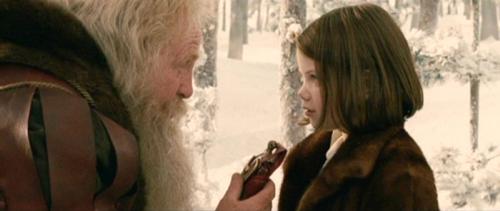 More from Stephen’s article:
More from Stephen’s article:
In The Lion, the Witch and the Wardrobe, Father Christmas finally enters the frozen land of Narnia that his master, Aslan, has begun to thaw. Father Christmas reflects the traditional figure 100 percent. He has a sleigh with reindeer, a sack full of gifts, and magical abilities including the power to enter locked rooms and leave gifts. But he also serves Aslan, Narnia’s king, as Aslan’s noble follower. In fact, if Aslan is a type (the better term is supposal) of Christ, then Father Christmas is a type of Aslan.
Father Christmas provides for the children’s and the Beaver couple’s immediate needs.
Father Christmas even provides a small feast, hearkening to future celebration of victory.
Father Christmas distributes gifts that are wonderful yet also suited to each child’s abilities and real-world callings. I love it when he says, “These are tools, not toys.” Some of the best gifts I can remember as a child were just that: tools, not just toys. I still have many of them.
Father Christmas honors Aslan as his own lord and savior. As he leaves he shouts, “A Merry Christmas! Long live the true King!”—honoring, yet redeeming, the original legend.
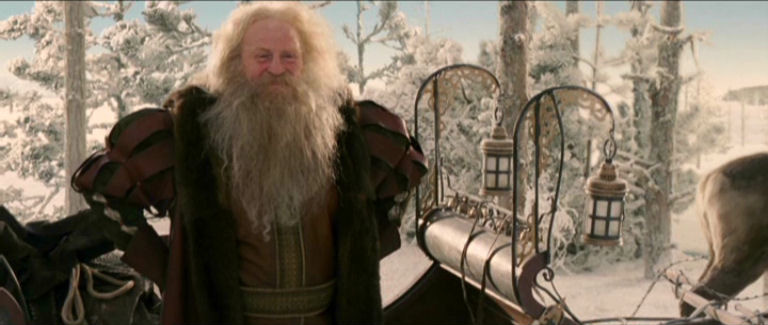
“A Merry Christmas! Long live the true King!”
Stranger than fantastical fiction
- “Leaked Photo Surfaces of Purported Unidentified Aerial Phenomena,” TheDebrief.org, Dec. 3, 2020
- Alien spacecraft, or Bat-balloon? You decide.
- We’re circling back to this topic in a future Fantastical Truth episode.
Com station

Here’s a sinister giver of toys we can all condemn.
We had a lot of discussion after and even before our last episode, about the 1986 evangelical book warning parents about Turmoil in the Toy Box.
Andy S.:
Is this book why I wasn’t allowed to watch GI Joe?
Another reader wrote:
OH MY STARS.
My mom read this book and scared us into throwing away all of our Barbie dolls and cabbage patch and everything like that. We as a family all laugh about it now, my poor mom included. So glad for growth and wisdom.
Mike Morrell:
That book was the bane of my childhood, resulting in the burning of many of my beloved toys and comic books.
The Red Rider author Randall Allen Dunn:
I remember that book being out. The fears of Barbie influence went on for years, along with criticism of Wonder Woman until Gal Gadot came along. It’s laughable now but things like this were taken very seriously at that time in the Christian community.
Ticia M.:
I couldn’t watch Smurfs because of that book.
Next on Fantastical Truth
What if you were a piskey girl, born without wings, raised underground, and desperate to learn to fly so she can venture in the strange world beyond? That’s the start of author R. J. Anderson’s series The Flight and Flame Trilogy, whose book 2, Nomad, just released in November. R. J. plans to join us in our next episode to explore this magical and miniature realm.


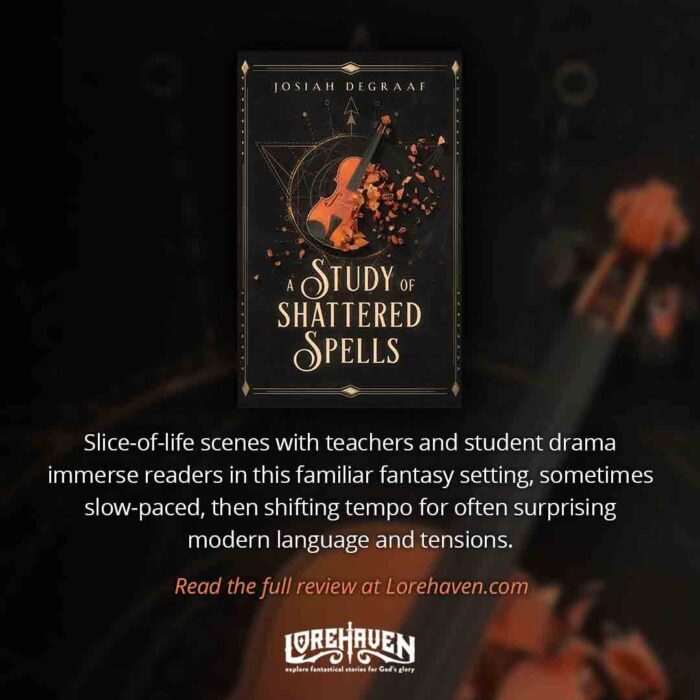





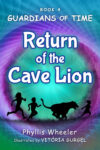





















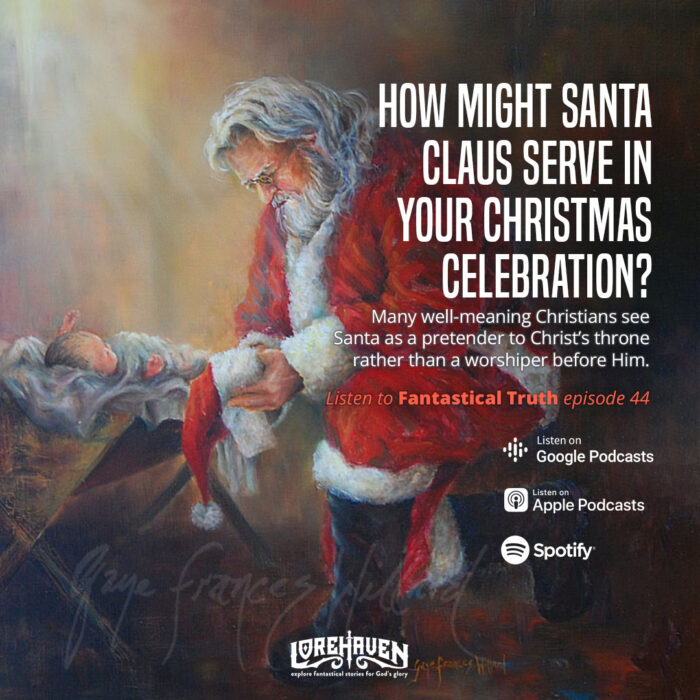



Share your thoughts about this podcast episode